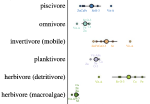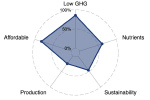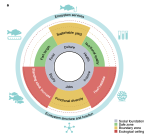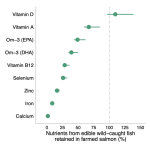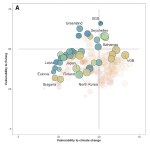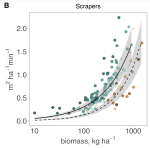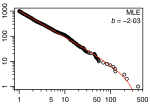
James Robinson
Coral reef ecologist
Lancaster University
I’m a Leverhulme Trust Early Career Fellow with LEC REEFS at Lancaster University in the UK. My research examines connections between marine ecosystems, fisheries and food, particularly in how climate change impacts small-scale tropical fisheries. I use underwater datasets, fisheries surveys, and nutritional data to understand ecological pathways that connect ecosystems to fisheries.

